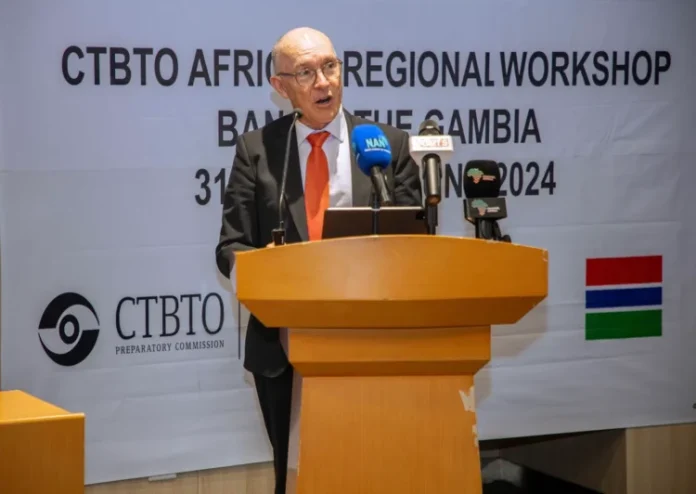Dr. Robert Floyd, Executive Secretary of the Comprehensive Nuclear-Test-Ban Treaty Organization (CTBTO), will visit Kenya and Zambia from August 15 to 20, 2024. This will be his second official visit to Kenya and his first to Zambia since taking office. The visit underscores the CTBTO’s ongoing commitment to working with African nations to advance its mission of banning nuclear testing and enhancing capacity-building efforts in the region.
During his time in Nairobi, from August 15 to 17, Dr. Floyd will engage in key meetings with Kenyan officials, attend the closing ceremony of a two-week CTBTO regional workshop focused on National Data Centres (NDCs) and their role in the CTBTO’s verification regime, and visit the infrasound station IS32, part of the CTBTO’s International Monitoring System (IMS).
Following this, Dr. Floyd will visit Zambia from August 19 to 20, where he will meet with government representatives, visit the auxiliary seismic station AS119 in Lusaka, and tour Zambia’s National Data Centre.
The Comprehensive Nuclear-Test-Ban Treaty (CTBT) prohibits all nuclear explosions globally, by any party, for all time. The Treaty has been signed by 187 states and ratified by 178. However, it requires ratification by all 44 States listed in Annex 2 to enter into force, with nine ratifications still pending.
The CTBTO has established an International Monitoring System (IMS) to ensure that no nuclear explosion goes undetected. Currently, 306 of the 337 planned facilities are operational worldwide, utilizing four main technologies: seismic, hydroacoustic, infrasound, and radionuclide. In addition to monitoring for nuclear tests, IMS data can be used for disaster mitigation, such as earthquake monitoring and tsunami warnings, as well as research in areas like whale migration, climate change, and monsoon prediction.


